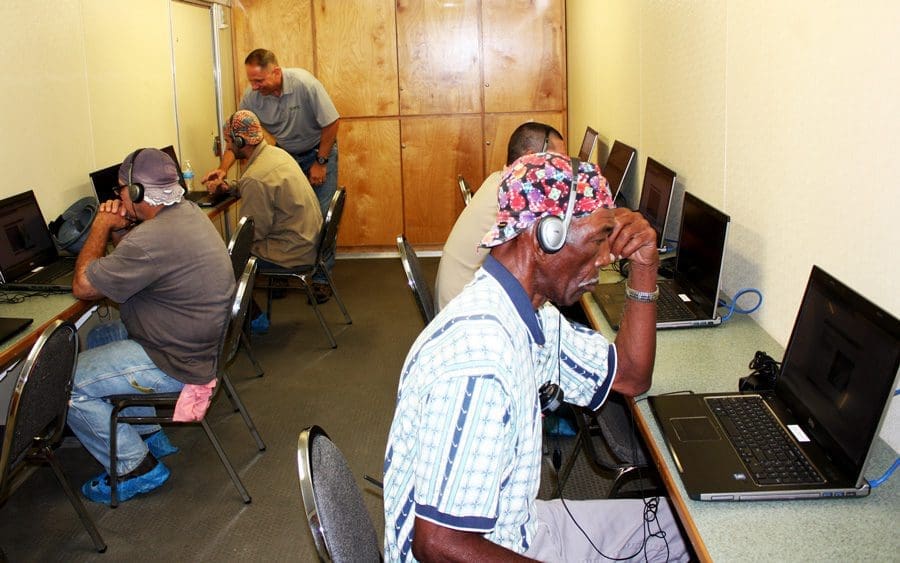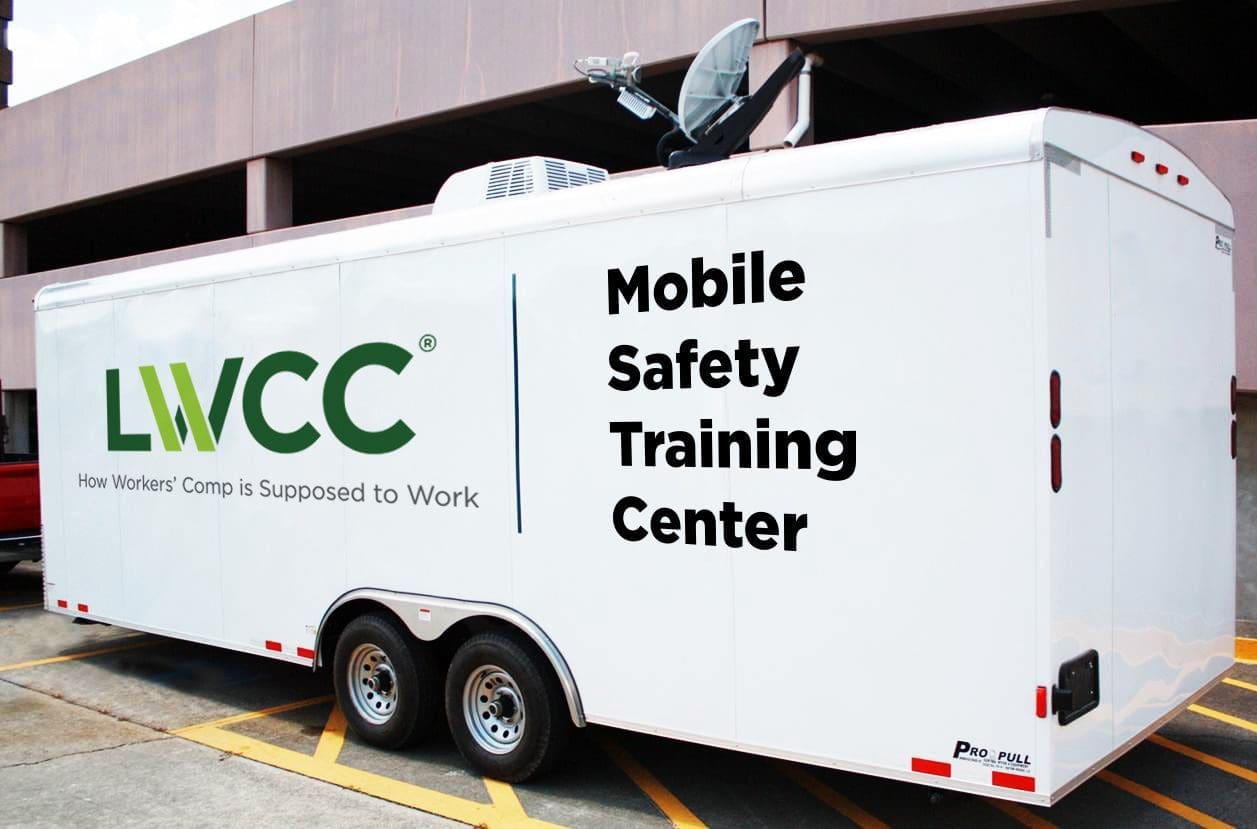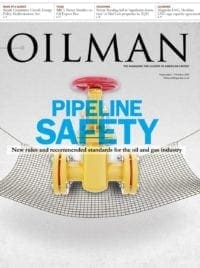
LWCC delivers classroom-style safety training to its policyholders’ doorsteps.
The workers’ compensation carrier offers a mobile safety training center as part of its commitment to workplace safety in Louisiana. It is one of the many ways LWCC continues to invest in Louisiana and its businesses and workers.
The mobile safety training center travels to policyholders, offering training and educational courses administered by a loss prevention team member. The 24-foot trailer is capable of providing classroom-style training and features satellite Internet access. Fully insulated and climate-controlled, the center can accommodate 11 learners, each with a 17-inch laptop computer for accessing online safety courses and exams. A 42-inch television is used for training that is conducted via the Internet, PowerPoint or DVD.
Twin Brothers Marine, a steel fabricator based in Louisa, La., servicing the oil and gas industry, uses the trailer to provide its employees with ongoing OSHA required training. The loss prevention team works with Twin Brothers Marine to analyze its risks and minimize injuries with targeted topics, such as eye injury prevention or slip-and-fall prevention.
Twin Brothers Marine’s remote location can make sending its employees off- property for external training time-consuming, and bringing in industry experts for OSHA-certified training can be costly. Using the mobile safety training center on their site helps keep the process short and sweet, with minimal downtime for the company’s 140-plus employees.
“I would say it is the most efficient way for us to comply with industry training regulations,” Darrell Webster, fabrications division manager for Twin Brothers Marine, said. “LWCC sets the trailer up, our safety director gives LWCC a list of employees who need training, and we simply pull those employees off the yard and send them through the trailer for training.”
Record keeping is another service of the safety trailer. Twin Brothers Marine supplies its customers with verification of employee training, and using the mobile training center has helped simplify its record keeping process. The record keeping also is useful when employees are promoted from one craft to another, preventing overlap in the training process, saving time and money.
Webster said that customers are impressed with the level of service their workers’ comp carrier provides them.
“This is certainly a much easier approach for us,” he said. “At the end of the training, we receive a printout that shows who took it, who passed it and who’s certified. It’s much easier on the record keeping side.”
The mobile safety training center has proven to be a benefit to Twin Brothers Marine. Since it began using the training center, the company has been recognized for its outstanding safety performance and commitment to workplace safety by earning one of the LWCC Safest 70 awards, which they have received multiple times over the last five years.

Lisa Doyle is Senior Communications Specialist for LWCC, a Baton Rouge, La.-based private, nonprofit mutual insurance company offering workers’ compensation that promotes safe work, prompt healing of the injured and economic stability in Louisiana. For more information on LWCC, visit www.lwcc.com.






